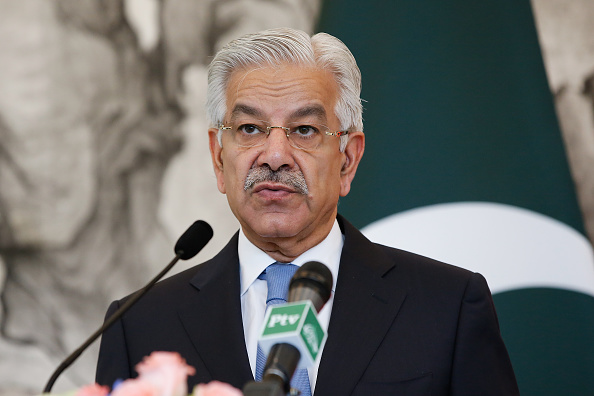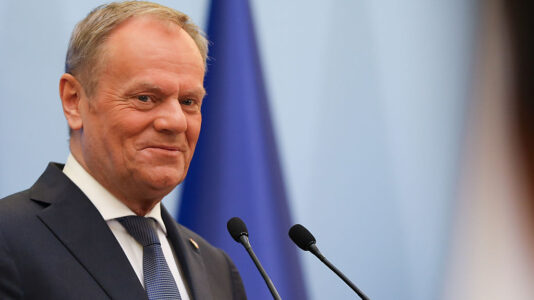Pakistan’s Defense Minister Khawaja Muhammad Asif has sharply defended the government’s mass deportation of Afghan migrants, branding opponents of the policy as “enemies of Pakistan” and insisting that anyone disrespecting the nation has no right to remain within its borders.
Speaking on Saturday, Asif rejected criticism of the ongoing expulsion campaign, which has already seen hundreds of thousands of Afghans forced back across the border. He argued that critics of the deportations are undermining Pakistan’s national interests, especially amid reports linking Afghan migrants to anti-government protests and security threats.
“Those who disrespect our flag and disregard our country do not deserve to stay here,” Asif declared, as cited by the Khaama Press news agency, vowing that the government would act decisively against both internal and external threats to Pakistan’s stability.
The crackdown, which began in late 2023, follows Islamabad’s claims that Afghan nationals were behind the majority of suicide attacks within Pakistan last year. The government reported that out of 24 such attacks in 2023, 14 were carried out by Afghans. Authorities estimate that more than one-third of the 4.4 million Afghans living in Pakistan are undocumented.
After issuing an ultimatum in October 2023, the government ordered roughly 1.73 million undocumented Afghan nationals to leave the country by Nov. 1 or face arrest and deportation. In the three months following the deadline, over half a million foreign nationals were repatriated, according to Pakistan’s Interior Ministry.
While Pakistan frames the deportations as necessary for national security, human rights groups and international observers have condemned the policy as a violation of humanitarian principles. Many of the Afghan migrants claimed to have fled violence and economic collapse in Afghanistan following the return to power of the Taliban.
European countries, particularly Germany, responded by stepping up efforts to resettle Afghans expelled from Pakistan. The German government admitted to fast-tracking its admissions process, even bypassing extended security checks to expedite arrivals.
Left-wing MP Clara Bünger even urged the federal government at the time of Pakistan’s expulsion order to speed up its admission process for new arrivals, even if this compromised national security.
“Extended security checks can, if necessary, also be carried out after entry into Germany,” she told the government.
Flights were suspended during the recent election campaign over fears the news could fuel support for the anti-mass immigration Alternative for Germany (AfD), but swiftly resumed after the election returned the opportunity for a Grand Coalition of the CDU and SPD, paving the way for more of the same when it comes to Germany’s liberal immigration policy. At least 3,000 Afghans were reportedly waiting at reception centers in Islamabad for transport to Germany.
This is despite the very real security concerns associated with newcomers and a multitude of high-profile attacks by Afghans.
Just weeks before the election, a 24-year-old Afghan migrant drove into a left-wing Ver.di demonstration in Munich, injuring 28 people, including a toddler. The perpetrator, a rejected asylum seeker with a criminal record, had been denied asylum in 2020 due to inconsistencies in his persecution claims. Earlier, in January, a fatal stabbing attack targeting a daycare group in Aschaffenburg’s Schöntal Park left a toddler and a man dead, prompting renewed calls to halt Afghan admissions and expedite deportations.
Further high-profile incidents include the trial of a 19-year-old Afghan asylum seeker in Frankfurt, who attacked a Ukrainian woman with a box cutter in broad daylight. Due to mental health concerns, he avoided prison time.
Additionally, a terror attack in Mannheim last June saw an Afghan migrant fatally stab a police officer, with another attack occurring days later when an Afghan knifeman assaulted police officers on the island of Rügen.
In response, the German Police Union demanded an immediate suspension of the relocation scheme, citing serious gaps in the verification processes for new arrivals.






